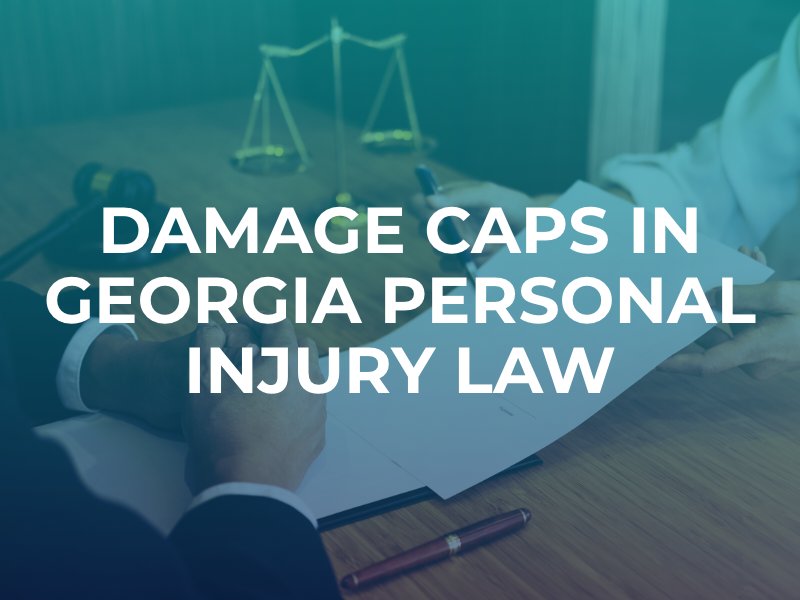Damage Caps in Georgia Personal Injury Law
If you or somebody you care about sustains an injury caused by the careless, negligent, or intentional actions of somebody else, this can lead to significant setbacks. Not only will you have to deal with physical and emotional pain and suffering, but you will also have to contend with incoming medical bills, lost wages, out-of-pocket expenses, and more. You should be able to recover compensation either through an insurance settlement or a personal injury lawsuit verdict, but do you know whether or not Georgia places limitations on the amount of money you can recover? Here, we want to discuss whether or not there are any damage caps in a Georgia personal injury lawsuit.

Types of compensation available in a Georgia personal injury case
Before we discuss whether or not there are limitations in place on damages awarded in an Atlanta personal injury lawsuit, we want to mention the most common types of compensation available in these cases.
- Economic damages. These are also referred to as “special damages” and include relatively calculable damages. This can include an injury victim’s:
- Medical bills
- Lost wages
- Out-of-pocket expenses
- Property damage expenses
- Funeral and burial expenses (wrongful death)
- Non-economic damages. These are also referred to as “general damages” and revolve around compensation that is less calculable. We often hear these damages referred to as “pain and suffering” that a victim may endure as a result of their injuries. This can include:
- Emotional distress
- Inconvenience
- Stress and anxiety
- Loss of companionship
- Loss of consortium
In order to calculate economic damages in a Georgia personal injury claim, a victim or their attorney will add up all of the bills, receipts, and proof of expenses in order to reach the correct amount. However, calculating non-economic damages is a bit more challenging. There are no bills or receipts that can show payment suffering directly, so attorneys will often use a “multiplier method.” This requires that they add up all of the economic damages and then multiply this by a set number (usually 1.5 to 5) to reach the total amount that they will ask for.
For example, if an injury victim sustains $100,000 worth of medical bills and lost wages, an attorney may use a multiplier of three to come up with $300,000 for their non-economic compensation request. In total, the victim and their attorney will ask for $400,000 in this theoretical case.
Are there damage caps in a Georgia personal injury lawsuit?
In general, there are no limitations placed on the amount of economic or non-economic damages awarded in personal injury cases in Georgia. However, there are some exceptions to this.
- Medical malpractice claims. There is no limitation on the amount of economic damages that can be awarded in a medical malpractice case, but there is a limit on the amount of non-economic damages for these cases. In general, there is a $350,000 limitation on the amount of non-economic damages that can be awarded in a case against a single medical facility (this number is increased to $700,000 from all medical facilities, in the event more than one medical facility was responsible for a medical mistake).
- Punitive damages. Punitive damages are not awarded in every personal injury claim, and they are typically reserved for instances when the actions of the defendant are grossly negligent or intentional. These damages are meant to punish the defendant and send a signal to others that this type of behavior is not acceptable. In Georgia, there is a limitation of $250,000 in punitive damages that can be awarded, and 75% of this award will be paid into the state treasury system.